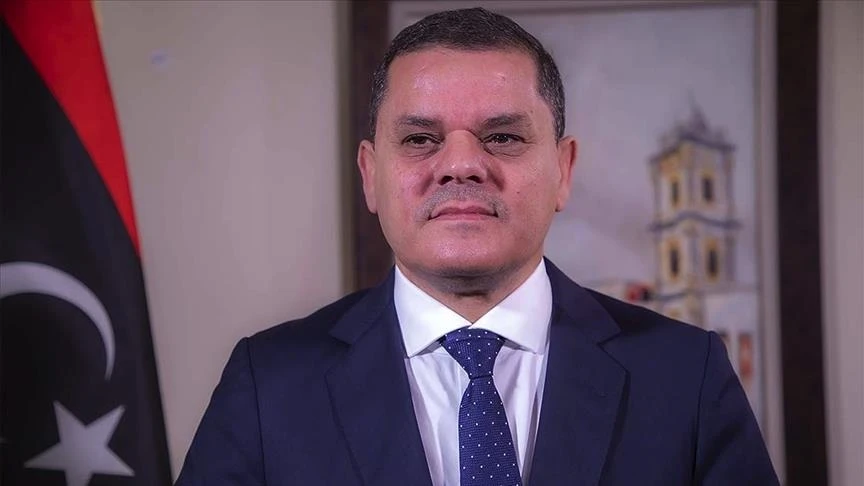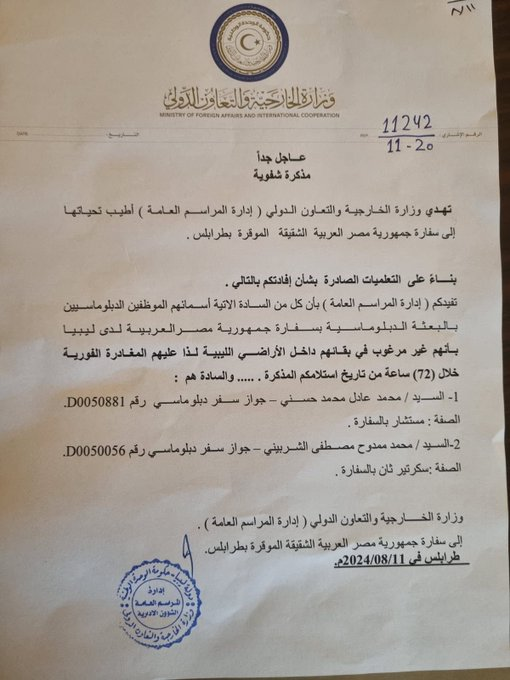Libyan Parliament ends Government of National Unity, tensions rise with Egypt
 Government of National Unity (GNU) Prime Minister Abdulhamid Dbaiba. (Photo via Anadolu Agency)
Government of National Unity (GNU) Prime Minister Abdulhamid Dbaiba. (Photo via Anadolu Agency)
In a significant political move, the Libyan Parliament has unanimously voted to end the term of the Government of National Unity (GNU) and its Prime Minister, Abdulhamid Dbaiba.
This decision, along with recent diplomatic tensions involving Egypt, underscores the deepening divisions within Libya’s political landscape.
Parliament’s decision
The Libyan House of Representatives (HoR), led by Speaker Ageela Saleh, voted to terminate the mandate of the GNU, which had been in place since March 2021.
The GNU, initially established to lead Libya to national elections and unify the country’s fractured political factions, has faced increasing criticism over its inability to fulfill these objectives.
Saleh emphasized that the Libyan Parliament, as stated in the Constitutional Declaration, holds the authority to issue laws with no need to present them to the government.
Furthermore, Saleh reiterated that the Speaker of the Parliament is the Supreme Commander of the Libyan Army, not the Presidential Council.
Diplomatic clash with Egypt
On Monday, Speaker Ageela Saleh condemned the GNU’s recent decision to expel Egyptian intelligence officials stationed at the Egyptian Embassy in Tripoli.
He labeled the move as reckless and unrepresentative of the true sentiments of the Libyan people. Saleh criticized the GNU, led by Prime Minister Dbaiba, as an “expired government” whose actions risk undermining the longstanding and close relations between Libya and Egypt, which he stressed should not be jeopardized by temporary political disputes.

Growing Rift between rival governments
The expulsion order highlights the ongoing rift between Libya’s rival governments.
The HoR, based in Tobruk, has established a parallel government in the east, with Osama Hammad serving as its Prime Minister.
Hammad’s recent visit to Cairo, where he was officially received by Egyptian Prime Minister Mostafa Madbouly, further exacerbated tensions.
Discussions in Cairo, which included talks on involving Egyptian companies in Libya’s reconstruction, angered the GNU and triggered the current diplomatic clash.
In response, the GNU’s Ministry of Foreign Affairs condemned Egypt’s official reception of Hammad, describing it as a breach of the international consensus aimed at preventing Libya’s return to conflict and division.
The GNU emphasized its commitment to balanced international relations, particularly with Egypt, to avoid deepening the country’s internal divisions.
Conversely, the eastern government’s foreign ministry defended Egypt’s actions and criticized the GNU for overstepping its authority.
The ministry praised Egypt for its ongoing support and highlighted the warm welcome extended to Hammad and his delegation in Cairo.
Security concerns, power struggles
The eastern government’s ministry also raised concerns about the security situation in Tripoli, describing it as “unstable,” and called for embassies to be relocated to Benghazi, which it claimed is a safer and more stable area.
This diplomatic dispute sheds light on the broader power struggle that has plagued Libya since the fall of Muammar Gaddafi in 2011.
The country remains divided, with the GNU controlling the West, including the capital Tripoli, while the HoR-backed government dominates the east.



